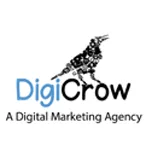Proven Strategies to Optimize On-Page SEO
– Strategies to Optimize Your Website for Maximum Impact
Strategies-to-optimize-On-Page-SEO – In the ever-evolving digital landscape, search engine optimization (SEO) remains a critical aspect of driving organic traffic to websites. Among the various SEO techniques, On-Page SEO Strategy plays a pivotal role in optimizing individual web pages to enhance their search engine rankings and visibility. In this comprehensive blog, we will explore different categories of On-Page SEO strategy to empower you with the knowledge and tools needed to optimize your website for maximum impact.
Keyword Research and Placement – Content Optimization
- The foundation of any successful On-Page SEO strategy begins with thorough keyword research. Identify relevant and high-impact keywords that align with your content and target audience’s search intent. Utilize keyword research tools such as Google Keyword Planner, SEMrush, or Ahrefs to identify valuable keywords with the right balance of search volume and competition.
- Strategically place these keywords throughout your website’s content, including the title tag, meta description, headings, subheadings, and within the body text. However, avoid overstuffing keywords, as it can lead to search engines penalizing your website for spammy practices.
Crafting High-Quality and Engaging Content
- Creating valuable, informative, and engaging content is the backbone of successful On-Page SEO. High-quality content not only attracts and retains visitors but also encourages them to share your content, leading to improved search engine rankings.
- Invest time in crafting well-structured content that meets the needs of your target audience and fulfills their search intent. Incorporate multimedia elements like images, videos, infographics, and interactive elements to enhance user experience and increase the shareability of your content.
Page Loading Speed and Performance – Technical Optimization
- Page loading speed is a critical factor affecting user experience and search engine rankings. Slow-loading pages lead to higher bounce rates, negatively impacting your website’s overall SEO.
- Optimize your website’s loading speed by compressing images, enabling browser caching, minifying CSS and JavaScript files, and leveraging Content Delivery Networks (CDNs) to reduce server response times. Regularly test your website’s speed using tools like Google PageSpeed Insights to identify areas for improvement.
Mobile-Friendly Design – Mobile Optimization
- In the era of mobile internet dominance, having a mobile-friendly website is no longer optional. Google’s mobile-first indexing means that the search engine primarily uses the mobile version of a website for ranking and indexing.
- Adopt a responsive web design to ensure your website seamlessly adapts to various screen sizes and devices. Test your website on different mobile devices to guarantee a smooth user experience for all visitors.
URL Structure and Optimization – Technical Optimization
- Creating clean and descriptive URLs is essential for both users and search engines. Use relevant keywords in your URLs, making it easier for search engines to understand your page’s content.
- For example, “www.example.com/On-Page-SEO-Tips” is more informative than “www.example.com/page1234.” Avoid using unnecessary parameters or special characters in your URLs to maintain readability.
Also Read : The Importance of Digital Marketing for Businesses
Title Tags and Meta Descriptions – Content Optimization
- Title tags and meta descriptions are vital components that provide a concise summary of your web pages’ content in search engine results. A compelling and relevant title tag can significantly influence the Click-Through Rate (CTR) of your pages.
- Ensure your title tags include the primary keyword and are limited to around 60 characters. Meta descriptions should be informative, enticing, and limited to approximately 160 characters, encouraging users to click through to your web pages.
Header Tags – Content Organization
- Header tags (H1, H2, H3, etc.) play a crucial role in organizing your content and making it more scannable for both users and search engines. Properly structure your headers to create a logical hierarchy of information.
- The H1 tag should contain the main headline and target the primary keyword. Subsequent headers should follow a hierarchical order, reflecting the content’s structure.
Internal Linking – Category: Content Optimization
- Internal linking is a valuable On-Page SEO strategy that connects different pages within your website. It enhances website navigation, distributes page authority, and encourages visitors to explore more of your content.
- Strategically link relevant anchor text to other pages on your website, ensuring it adds value to the user’s experience. However, avoid excessive linking, as it can be perceived as spammy by search engines.
Use of Rich Snippets – Content Optimization
- Rich snippets provide additional context about your web pages in search results, making them more appealing to users. Examples include star ratings, reviews, recipe details, and event timings.
- Implement structured data markup using Schema.org vocabulary to help search engines understand your content better and potentially display rich snippets in SERPs, increasing the visibility of your website.
In conclusion, mastering On-Page SEO strategy are essential for optimizing your website and achieving maximum impact in search engine rankings and user engagement. By implementing the strategies discussed in this blog, such as conducting thorough keyword research, creating high-quality content, optimizing technical aspects, and enhancing user experience, you can significantly boost your website’s performance and attract valuable organic traffic. Remember that On-Page SEO is an ongoing process, so regularly monitor and adapt your strategies to stay ahead in the competitive digital landscape. With dedication and a well-executed On-Page SEO strategy, your website will flourish, reaching new heights of success in the online realm.



